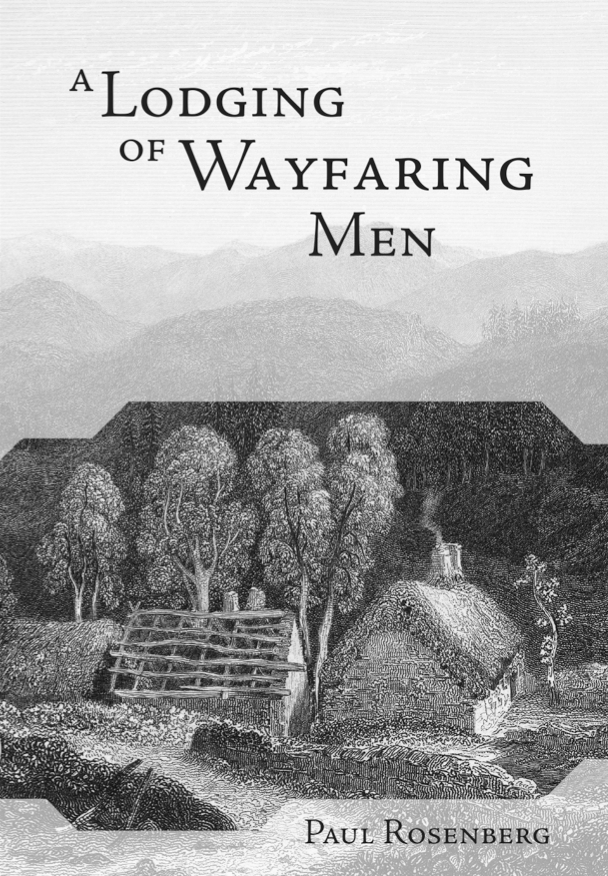 Paul Rosenberg - Freeman**Q**s Perspective
Paul Rosenberg - Freeman**Q**s Perspective
IPFS
PJ's Q & A
Written by Paul Rosenberg Subject: Books This is a set of questions and answers that I included in A Lodging of Wayfaring Men and later removed because the book worked better without them. And even though I'd write it quite differently today (I wrote this 20 years ago), I still think it's a meaningful discussion. And so I'm passing it along.
This is a set of questions and answers that I included in A Lodging of Wayfaring Men and later removed because the book worked better without them. And even though I'd write it quite differently today (I wrote this 20 years ago), I still think it's a meaningful discussion. And so I'm passing it along.
* * * * *
Q: PJ, you are founding your version of good and bad upon self-interest. How can you leave doing things for others entirely out of the picture? No selfless deeds? Sounds like hell to me.
Seminary Steve
A: Steve: First of all, using the phrase "doing things for others" creates confusion. Who you do something for does not make an action good or bad. It is what you do that makes it good or bad.
Everything people do is for self-interest. That includes giving to charity and nursing the sick. You do it because you value the people you are helping. You think it is worthwhile to birth some kindness into the world. You are doing this because it makes you feel good. It may make other people feel good, too, but you are doing it for yourself.
Choosing not to use other people wrongly – to treat them well and to be benevolent – that is not selfless. That is an expression of integrity, based upon your self-understanding of what being treated wrongly is like.
Using selflessness as the definition of good is a scam. It is contrary to human nature, it is dishonest, and it never works. And don't think that it comes from the Bible, because it does not. "Loving your neighbor as yourself" assumes that you first love yourself. This commandment is built entirely upon self-interest, and without self-interest it has no meaning at all.
Let me tell you something, I've done the "selfless" thing. And I mean that I have really done it, not tried to do it "as best I could." I did it full-out, with all my strength. And do you know what? It's a fraud. The people who have really lived altruistically are either in deep guilt over their inner inability to enjoy it, or have realized that it is BS. It is a doctrine that contradicts human nature. It has never worked and it never will, unless we someday become a race of hive-bound robots. If you don't believe me, go do it! Go live completely altruistically – do everything for others. But really do it! No half-hearted attempts – you go give it everything you've got. Then you'll know the truth of the matter.
Do you want to make the world a more beautiful place? Wonderful, go do it. But don't ever think you are being selfless. You are being the opposite of selfless. When you are making the world better, you are upholding yourself. You are honoring your own love of beauty, life, and peace; you are working to bring your version of goodness into being. Be proud of what you are doing!
Don't degrade yourself to say that the only good you can do is when you get your evil self into some sort of coma! It's a lie. Take credit for the good you do! And unless you are doing it at someone else's expense, don't ever feel bad about doing good to yourself!
PJ
Q: PJ, I suppose you'll think I'm not willing to let go of this subject… and I suppose you're right. Again, you go back to self-reference to establish goodness. I can't argue with you about the scripture that says "love your neighbor as yourself." (Yes, that is built on self-interest, though I've never had it pointed out to me before.) BUT, isn't man's nature flawed? All the evil we see every day should at least tell us that. And if human nature is flawed, doesn't it follow that it is not a reliable guide, and that a definition of goodness must come from somewhere outside of flawed man? I know I sound like I'm challenging you here, but that's not my only point. I really think I am correct.
Seminary Steve
A: Steve: Please don't ever think that I'd like you to disregard your own judgment. You are to be commended for sticking with it until you are convinced otherwise.
As I see it, you are making a couple of assumptions that I do not. First, I do not think that man's nature is necessarily flawed. Most men's actions are obviously flawed, but not necessarily their natures.
Next, even if man's nature were flawed, that does not mean that he could not use other tools to ascertain the true and the good. In fact, that is exactly what science does. By careful observation, reason, and verification, we can discover truths that we were initially blind to, or even opposed to.
Steve, I know you are a seminary student, so I want to give you a couple of things to think about:
When man was in the Garden of Eden, there is only one thing ever mentioned about their thinking: "and they were not ashamed." So, the only thing we know about the inner life of someone living in paradise is that they are not ashamed. Interesting, no?
There is obviously a great deal to be said about the Bible's story of the fall of man. But Adam and Eve's big mistake comes before they eat the fruit. They erred when they judged their own natures to be insufficient. The serpent says that if they eat the fruit, they will be as Gods. But God had made them in his own image, and had said that everything he made was "very good."
Were they fully developed? No. But they could have grown and matured into being "as Gods." They were, by nature, suited to such growth, and they didn't need the fruit of the tree in order to get it.
Remember now the line in Philippians where Paul says that Jesus "did not think it robbery to be equal with God." Adam and Eve decided that their natures were insufficient to be equal with God. They were wrong. Jesus, on the other hand, did believe that his nature was sufficient.
Adam's mistake was to undervalue his nature.
If this is correct, then it may well be the mistrusting and devaluing of one's own nature that causes the evils that we see around us every day. If our natures are not automatically bad – but if we nonetheless treat them as if they are bad – wouldn't that lead to a host of problems and mistakes?
If a man did believe in the sufficiency of his own nature, what would he be like? What would it feel like to be completely unashamed?
PJ
* * * * *
The novel that helped put the crypto revolution into high gear.
Comments from readers:
"Of the twenty five or so people I worked with last fall, all of them revered A Lodging of Wayfaring Men as a bible. They referred to the house and their community effort as a Lodge. We all felt it was modeled on the Free Souls."
"Actually, I am somewhat at a loss as to how I might explain how I feel about this book other than to say what a great mind to write such an awesome story!"
"I'm an Old guy and find that Rosenberg has captured many Real-World truths in this novel. I wish the Millennial Generation would read this novel and consider the concepts and rationale presented here."
Get it at Amazon or on Kindle.
* * * * *
Paul Rosenberg
www.freemansperspective.com
























